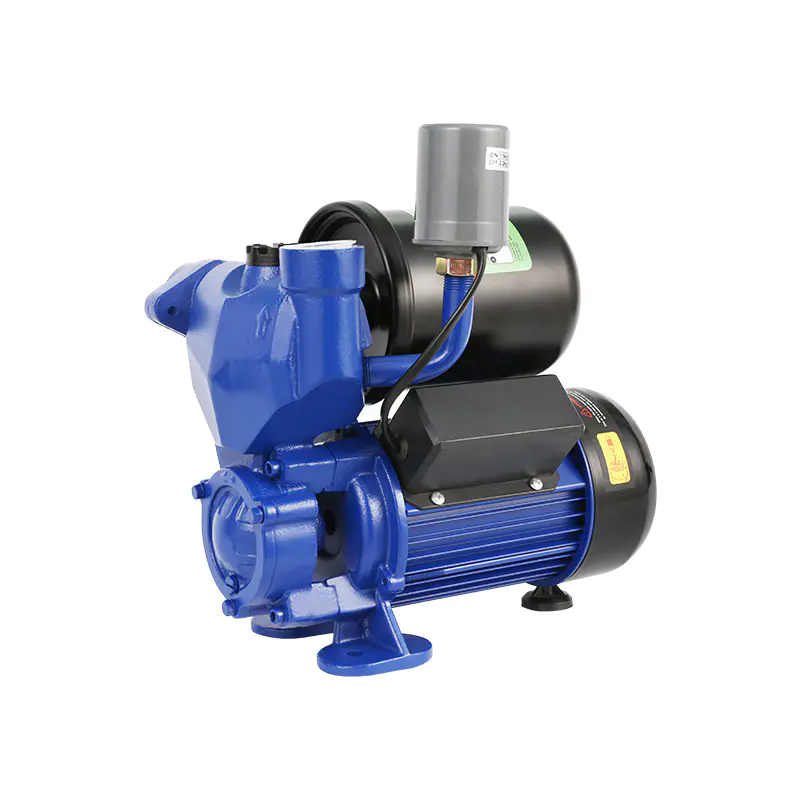Understanding Centrifugal Water Pumps: Essential Insights for Industrial Applications
2025-09-12

One of the primary advantages of centrifugal water pumps is their ability to handle large volumes of fluid. They are particularly effective in applications requiring high flow rates and relatively low viscosity fluids, such as water. This makes them an ideal choice for industries ranging from construction and agriculture to municipal water supply and wastewater treatment. Additionally, these pumps can be designed to handle varying head conditions, making them versatile for different operational needs.
Another key feature of centrifugal pumps is their relatively simple design and ease of maintenance. Most centrifugal pumps consist of fewer moving parts compared to other types of pumps, which reduces the risk of mechanical failure and makes routine servicing more straightforward. Proper maintenance, such as regular inspection of seals and bearings, can significantly enhance the longevity and reliability of the pump.
Centrifugal water pumps also come in various configurations, such as single-stage and multi-stage designs. Single-stage pumps are typically used for applications requiring low to moderate pressure, while multi-stage pumps can achieve higher pressures suitable for applications like high-rise building water supply or irrigation systems. Selecting the right type of pump for your specific use case is crucial to ensure optimal performance and efficiency.
When implementing centrifugal pumps in industrial processes, it's important to consider factors such as fluid characteristics, ambient conditions, and required flow rates. Understanding these parameters can help in selecting the right pump model and configuration to suit the operational requirements. Additionally, incorporating variable frequency drives (VFDs) can enhance energy efficiency by enabling precise control over pump speed and flow rate.
In conclusion, centrifugal water pumps are a vital part of modern industrial operations, providing an efficient means of fluid transport. By understanding their operational principles, advantages, and applications, professionals can make informed decisions to optimize their fluid management processes. Investing in the right pump technology can lead to significant improvements in efficiency and productivity in various industrial sectors.
Other blog
Understanding Peripheral Water Pumps: Essential Insights for Industrial Applications
Peripheral water pumps are specialized devices commonly used in various industrial applications for the efficient transfer and circulation of water and other fluids. Known for their compact design and high efficiency, these pumps operate on a unique principle that distinguishes them from other types of centrifugal pumps. Understanding the operational mechanics and benefits of peripheral water pump
Top 5 Advantages of Using a Peripheral Water Pump in Industrial Applications
Top 5 Advantages of Using a Peripheral Water Pump in Industrial Applications In the realm of industrial operations, the efficiency of water pumps plays a crucial role in ensuring smooth workflows and reliable performance. Among various types of pumps, **peripheral water pumps** stand out due to their unique design and operational advantages. In this comprehensive exploration, we will delve into th
Understanding Peripheral Water Pumps: Efficiency and Applications in Industrial Settings
Peripheral water pumps are essential components in a variety of industrial systems, playing a critical role in fluid management across multiple applications. These pumps are characterized by their unique design, which utilizes a peripheral impeller to generate pressure. This mechanism allows them to efficiently move water and other fluids while maintaining a smaller footprint compared to other pum
Quick Links
Product

Social Media
Parent Company:TAIZHOU WERTO IMPORT AND EXPORT CO.,LTD Head Office:
ROOM06,5FLOOR,UNIT2,#3TIMES BUILDING.NO.115 JIULONG AVENUE WENLING ZHEJIANG CHINA
Factory:TAIZHOU WERTO MECHANICAL AND ELECTRICAL CO.,LTD
Address:No.20 Building,Zeguo Industrial Zone,Wenling,Zhejiang,China
COOKIES
Our website uses cookies and similar technologies to personalize the advertising shown to you and to help you get the best experience on our website. For more information, see our Privacy & Cookie Policy
COOKIES
Our website uses cookies and similar technologies to personalize the advertising shown to you and to help you get the best experience on our website. For more information, see our Privacy & Cookie Policy
These cookies are necessary for basic functions such as payment. Standard cookies cannot be turned off and do not store any of your information.
These cookies collect information, such as how many people are using our site or which pages are popular, to help us improve the customer experience. Turning these cookies off will mean we can't collect information to improve your experience.
These cookies enable the website to provide enhanced functionality and personalization. They may be set by us or by third-party providers whose services we have added to our pages. If you do not allow these cookies, some or all of these services may not function properly.
These cookies help us understand what you are interested in so that we can show you relevant advertising on other websites. Turning these cookies off will mean we are unable to show you any personalized advertising.





